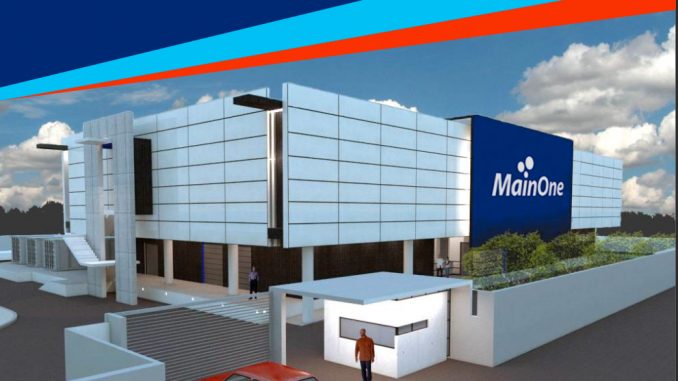ICT
Data centre is the bedrock of organization’s IT systems — Rack Centre boss
Published
8 years agoon
By
Olu Emmanuel
Tunde Coker, managing director of Rack Centre has within a short time built a reputation for innovation and the democratisation of IT business in Nigeria. The mechanical engineering graduate from Glamorgan University believes that Nigeria will be an industrialised and transformed top 20 global economy and is very pleased Rack Centre is a key part of that journey. Excerpts:
POWER challenges have been a big issue for investors in Nigeria, how do you cope with this challenge?
At the time of commissioning we assessed and found grid utility did not meet our reliability and dependability standards. So we currently run on fully redundant diesel power generation. The utility power situation has since changed and we are now implementing industrial dedicated utility power with a substation at Rack Centre. This will be live in Q 1 2016. We are undergoing detailed design for gas power which will come into play in 2017 giving multiple sources of power; utility, gas and diesel. We may then consider getting the Tier IV certification, which may well be another first in West Africa. Our technology is highly efficient and we achieve average Power Utilisation Effectiveness (PUE) of 1.5 compared to a typical PUE of 2.5 in the region. This is outstanding for the local climatic conditions we have.
Some content providers as well as state governments have attributed security concerns as responsible for them hosting their servers outside. How would you react to this and does Rack centre have any security certification to address this concern?
Our data centre is designed and sited with effective security within a private estate. There are ten (10) layers of physical security combined with both card and biometric access control devices.
CCTV monitoring of the entire facility is available 24/7/365 with six months of footage immediately available for review on request.
The physical security/access control system is a major innovation on its own. The ten (10) layers of physical access control starts right from the first gate all the way to the racks combining manned gates, card access control systems, biometric access control systems, physical locks and keys that ensure that access is strictly on an “authorised-need-to-access” basis. Customers are able to limit access to racks down to individual employees.
This gives our clients a high level of assurance that infrastructure collocated with Rack Centre “lives” in a very secure environment. We operate the business to international security and service management standards.
Software security is down to the responsibility of the clients; although we ensure the delivery of communications links to the racks are highly secure.
Customers who collocate their assets at Rack Centre have been amazed at quality of installation and ongoing service, which then gives the confidence and peace of mind on the security of their IT assets.
Data centre outsourcing is a new line of business for Banks, Telcos among others. Why should a bank or any other organization consider Rack centre data centre?
A data centre is the bedrock of an organization’s IT systems. If the data centre is down, all systems are down, and more importantly your business.
So CEOs want to ensure reliable data centre however, many organisations today cannot afford the huge upfront capital cost of building a new, efficient data centre to meet new demands for reliable IT.
It takes millions of US dollars to build an efficient data centre; a key asset, but non-earning asset. Not only does building a data centre require specialist expertise, running and sustaining the quality requires continuing focus and investment.
By outsourcing, they; avoid immediate and future growth fixed infrastructure investments; have immediate access to required capacity. Data centers can typically take up to 18 months to construct; access to future capacity is matched by Rack Centre’s scalability to their business IT demands; can invest capital and time into earning assets and their core business, and option of colocating prime or disaster recovery infrastructure; leave the growing complexity of managing power and environmental issues to data centre specialist such as Rack Centre.
CIOs and CEOs that colocated at Rack Centre say they can sleep at night with the reliability they get from colocating at Rack Centre.
As a carrier neutral facility, the broad range of telecommunications companies connected to Rack Centre gives choice of connectivity providers to our clients. Rack Centre is modular and highly scalable.
The significant growth of IT and data demand means client owned data centres are reaching capacity or over loaded with the headache of having to extend their data centre facilities.
What is nature of your support in terms of tailored services to SMEs? We work with our Reseller partners to provide hosting, cloud, managed services and connectivity.
The hosting requirements for SMEs including cloud services can be tailored to meet individual requirements. This is significant as it now gives SMEs access to computing resources previously beyond their reach enabling them to focus on growing their businesses.
What do you think are the challenges facing business operations in Nigeria?
The challenges can be summarized into two broad divisions- power and talent. We address both by ensuring we put in place the right processes and focus on enterprise risk management. I have mentioned our sophisticated power architecture.
We have tightly managed processes in place to ensure diesel quality; have a fuel testing lab, and we test and segregate all deliveries. Our minimum standards are to the European and US standards of 9% and 5% maximum impurity levels respectively.
On people, we have a high level of focus on our people development to world-class standards. Our staffs are exposed to the same training experienced by any leading data centre provider in the world. People and competency management is central to our core values.
What is your assessment of IT regulations in Nigeria?
We do have some regulations that support local content that are being increasingly enforced. When we did not have the data centre quality such as Rack Centre in the country, companies that sought quality had no option but to look abroad.
At that time, insisting on local content where local quality was not there would embed mediocrity. Now we have proven world class facility and the capacity locally, those laws can be enforced.
We do have local manufacturing of computers and other hardware and carefully thought out policies that encourage the patronage of locally produced products should be considered. Not ban imports, but make local products as competitive and more attractive based on normal market forces
What are the visions of Rack Centre?
The vision was for Rack Centre to be the leading data centre in Sub-Saharan Africa; delivering robust colocation services to world class standards. A modular, off-site constructed facility was preferred for two key reasons: To allow for the site to scale meeting demand over multiple phases. Modular scalability is ideal for what was a nascent market at the time and projected to grow at double digits and also provide a facility with a finished build quality to match any new build in Europe o America.
Rack Centre is built to world class standards and the first West African data centre to receive Tier III Design certification in 2014. It is truly carrier neutral; this means it has all the leading telecommunications providers connected, the widest choice in West Africa and more than any of the local Tier lll data centres.
It is the primary host for the Internet Exchange Point of Nigeria. This is significant as customers located at Rack Centre have direct connection to the IXPN giving significant benefits in customer experience for Internet services.
In the area of certification, what is the level and benefits?
Rack Centre is Design Certified to Tier III by the Uptime Institute, the global authority for data centre certification. The Uptime Institute is “The Global Data Centre Authority” that facilitates and certifies data centres around the world on their reliability and uninterruptible availability.
It also delivers due diligence assessments and certifications of site infrastructure and site management in accordance with the Tier and Operational Sustainability Standards in over 40 countries worldwide.
Tier certification is the validation of the reliability inherent the design of the data centre. There are four tiers of certification. Tier I being the lowest, Tier IV, the highest and are subject to stringent qualification criteria. Tier III is the highest possible in most parts of the world.
For instance, a Tier II data centre has a design downtime of 22 hours per year, a Tier III just 1.6 hours allowable.
If the data centre is down, the business is down. I am pleased to note that since commissioning over 24 months ago, Rack Centre has had 100% uptime. Tier certification is analogous to a driving licence. It is the stamp of minimum certified proficiency. You would not hire a driver without a driving licence, just as it is not advisable to trust critical IT assets to uncertified data centres or where the tier level does not meet your enterprise risk criteria.
You may like


Manufacturing, ICT, other sectors to benefit more from Naira stability–expert


Telecom leads as ICT contributes 15.97% to Nigeria’s GDP in Q3, 2023


2023 Elections: Pantami inaugurates committee for cyberspace and ICT infrastructure protection


Huawei trains 2,000 youths, civil servants on ICT


Jonathan challenges ECOWAS on use of ICT for credible elections


MainOne expands data center
Trending

 Aviation6 days ago
Aviation6 days agoForeign airlines using lower price to force Air Peace from Nigerian-London route–Onyema

 Business4 days ago
Business4 days agoDollar crashes further against Naira at parallel market

 Business4 days ago
Business4 days agoRecapitalisation: Zenith Bank to raise funds in international capital market

 Featured1 week ago
Featured1 week agoPelumi Nubi : London-to-Lagos solo driver honoured by Sanwo-Olu

 Education4 days ago
Education4 days agoArmy reveals date for COAS 2024 first quarter conference

 Crime4 days ago
Crime4 days agoFleeing driver injures two on Lagos-Badagry expressway

 Business7 days ago
Business7 days agoCrude oil sells above $90 per barrel as ceasefire deal between Hamas, Israel fades

 Business6 days ago
Business6 days agoLagos Calabar Coastal Road project will offer significant economic benefits–Umahi

